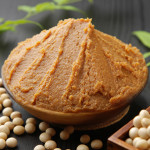
By Beth Buczynski
It’s sometimes funny to me how freaked out humans are about bacteria. All we need is one little study that tells us there are bacteria on our food or bathroom sink, and we’re sterilizing everything in sight. If you’re one of these bacteria-phobes, brace yourself: there are more than 100 trillion microbes from more than 500 bacterial species living on and in your body right now.
Still holding it together? OK then here’s the good news: these little organisms are supposed to be in your body. In fact without them, you’d probably be in the hospital, or dead. We and the bacteria are symbiotes (any Star Wars fans in here?), which means we need each other to survive. The microbes coating our skin, mucus membranes and gastrointestinal tracts help keep pathogens in check, break down food, enhance nutrient absorption, regulate your mood and boost immune system function. In turn, we’re expected to eat the types of things that these microbes need to do their jobs, 24 hours a day. Unfortunately, we often fail our bacteria.

In order to keep our body’s microscopic residents happy, it’s essential to replenish their tanks on a regular basis. This means eating what are often called “cultured,” or “naturally probiotic” foods. These are foods and beverages that are often fermented in some way, giving beneficial bacteria a chance to grow. When you ingest these foods, it’s like sending reinforcements to the army of gut bacteria working to fight pathogens that would make you sick or interrupt proper digestion.
Willfully eating bacteria-ridden foods might sound strange and scary, but as you‘ll see from the list below, many probiotic foods are commonly found in grocery stores, or easy to make.
1. Yogurt
Live-cultured yogurt is an easy way to give your body a regular dose of healthy bacteria. The only problem is that most commercial yogurt brands are filled high fructose corn syrup, artificial sweeteners and artificial flavors. These nasty ingredients overpower the bacteria’s healthy benefits, which is why it’s better to make your own (don’t worry, it’s surprisingly easy, even if you don’t eat dairy!)
2. Miso
Common in Asian cooking and medicine, miso is a paste made from rye, beans, rice or barley and allowed to ferment for three months to three years. Among other things, miso is known to restore beneficial probiotics to the intestines, strengthen the immune system and aid digestion.
3. Sauerkraut

Popular in European cuisine, sauerkraut is made from fermented cabbage (and sometimes other vegetables). When you buy commercial sauerkraut many of the beneficial bacteria have been killed by pasteurization, but you can retain sauerkraut’s health benefits by making it at home.
4. Kombucha Tea
This probiotic beverage has become increasingly popular, and is often found in conventional grocery stores. Kombucha is a raw, fermented, probiotic and naturally carbonated tea made by mixing water, sweetener and tea with a SCOBY (Symbiotic Culture of Bacteria and Yeast) that looks like a large jelly-pancake. Although the taste can take some getting used to, kombucha fans (myself included) find that drinking it relieves a number of ailments, in particular digestive, intestinal issues.
5. Pickled Vegetables

As Care2 contributor Delia Quigley once wrote: “Pickles contain large amounts of lactobacilli bacteria, which are important to the digestion of grains and vegetables. One property common to all pickles is high fiber, which is important to proper intestinal functioning.” The key is to pickle things yourself rather than buying highly-processed commercial brands.
Visit EcoWatch’s FOOD page for more related news on this topic.


Leave a Reply
You must be logged in to post a comment.